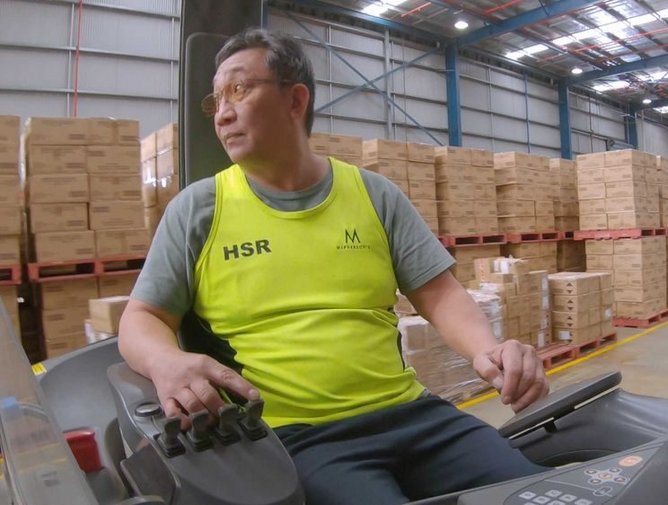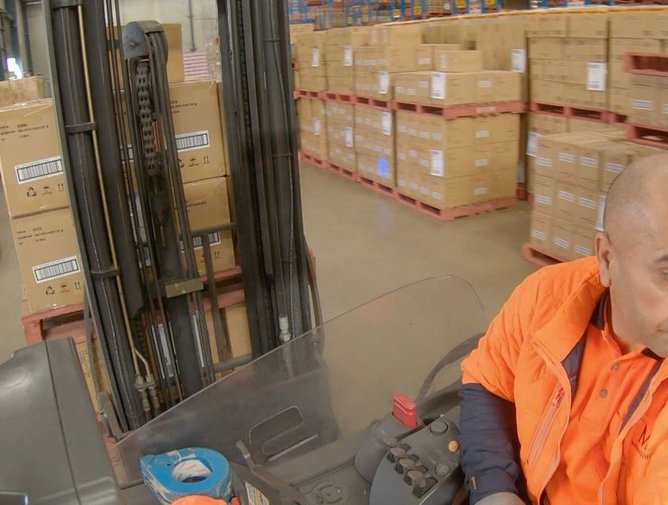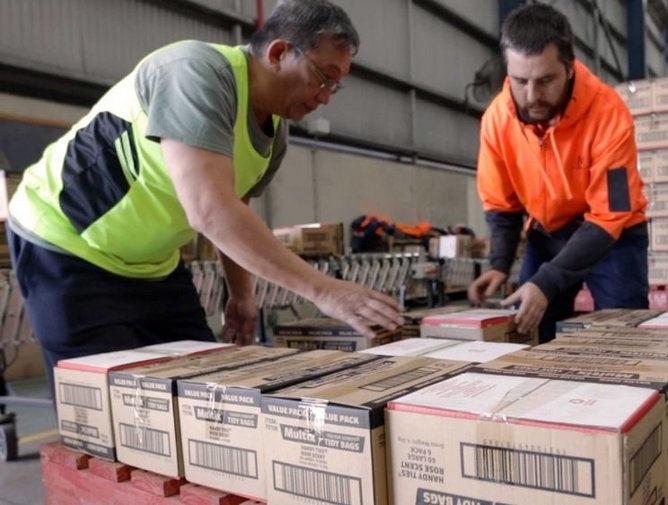McPherson’s Consumer Products’ Supply Chain Transformation
McPherson’s Limited, established in 1860, is a leading supplier of Health, Wellness and Beauty products in Australasia and China
Mark Brady, Supply Chain Director for McPherson’s Consumer Products, tells us about how great people, sound methodology and tools, and meeting customers where they are is the key to successful digital transformation.
McPherson’s Consumer Products (MCP) is the embodiment of a business that has adapted to changing times. From manufacturing the nuts and bolts used to build the iconic Sydney Harbour Bridge, to making the railway spikes that link Sydney to Perth by rail, to now becoming a marketing and distribution company that delivers products that are found in the bathrooms and kitchens of homes across all their markets, MCP has adapted to hundreds of challenges over the years.
With customers ranging from major supermarkets such as Also ALDI, Coles, Metcash and Woolworths, through to small, independent pharmacies, and big pharmacy groups such as Chemist Warehouse, Priceline Terry White etc, Mark Brady, Supply Chain Director for McPherson’s Consumer Products, says the secret to MCP’s success is people.
“Our business cannot function without the right people,” says Brady. “I am so very fortunate to have the right people around me, both in supply chain and other functions in the business. I firmly believe the well-worn statement ‘culture eats strategy for breakfast’.”
One might think that a business that has been able to evolve would be a hot-bed of employee turnover as the business looked for new ideas and innovative approaches. But that’s not the case. Brady is a relative newcomer to the business, having been there for about ten years. The average tenure of personnel in his supply chain team is 19 years with three team members marking over 40 years of service.
“High calibre and functional expertise is multiplied by creating the right environment for everyone to succeed,” says Brady.
He says that comes by questioning and listening to everyone. While Brady has a Black Belt in Six Sigma and Lean methodologies, he says through engagement and leading by example he knows that when he’s not there on a night shift that everyone from the cleaning crew to warehouse staff are doing the right thing because they trust each other and the systems they have created. Being prescriptive with a methodology or set of tools is not always the answer. Rather, success comes from taking what works and listening to people.
“We all bring value and skills to the tasks and challenges around us,” says Brady. “My style is to ensure we work cohesively as a group, succeed together and support each other – put simply, get better and better each day. If I can ensure people can see their value, know their place and have line of sight to how that value deliveries for the broader business goals and strategy – that’s the ideal.”
That’s clearly worked, as the company has acquired and divested brands from its portfolio and expanded its footprint with new warehouses to complement the business’ main distribution centre in Sydney. It’s why he can trust his team to pack and ship a pallet of goods to a large customer with the same care as a small box of health and beauty products to an independent pharmacy.
As well as valuing relationships with staff, many of the commercial partnerships MCP has have been long-standing, with many suppliers working alongside MCP for over a decade. And, as the business has evolved its approach to logistics as new technologies have enabled more efficient and effective ways of doing things, that’s meant using regulated information flows to ensure everything – from the source of a product’s raw materials, through to how a truck is packed, to driver fatigue – is monitored and that information is shared where it makes sense. Although that can be challenging, as some suppliers still retain paper-based processes – something that will, in time, lead to MCP looking for alternative providers to ensure the accuracy and efficiency of critical business processes. In other cases, suppliers are reluctant to share some of their intellectual property.
“We are fortunate to have many long-term partners,” explains Brady. “Although we go to market periodically to ensure the right cost-based market solution, we have stayed with partners for the long term. This brings assurance to both parties and allows us to develop together. We have also invested in them, built their capabilities as they deliver the services we need from them.”
McPherson’s doesn’t tend to have a direct connection to consumers – most its products are distributed and sold by retailers. But the company has a comprehensive digital strategy that is reviewed annually. But it’s not developed in isolation – employee engagement is a critical element.
“We conduct research into global trends affecting our industry and the overall marketplace to determine their relevance to our business,” says Brady. “We take a hard look at our achievements over the last year and use this information to develop and refine our strategy. This process is collaborative and shared across the business, ensuring all employees are a part of our ongoing digital transformation.”
That ensures that the attraction of the newest technology doesn’t overshadow its value. Avoiding what Brady calls the ‘shiny new penny’ is important. “I want to know how it will amalgamate with my present experienced staff, the process they have, and give me the edge to be able to journey,” he adds.
The adoption of the right new technology is exceptionally important, says Brady. The company works with strategic partners and has embraced cloud systems, such as Salesforce Commerce Cloud, where it makes sense. And while emerging technology such as Machine Learning (ML) and Artificial Intelligence (AI) garner lots of headlines, Brady says the company is looking at where it can add specific value. For example, better forecasting could help the business reduce its stock holdings significantly. But he’s not convinced AI-driven robotics makes sense yet for picking and packing processes.
The success of the McPherson’s supply chain and the team led by Brady is supported by great tools and technology. Brady’s experience with Six Sigma and Lean informs his approach but does not dominate it. The company’s mantra – Be Bold, Be Brave, Be Better – is people driven. Every single staff member is a stakeholder in the business, receiving $1000 of shares as a gift each year. Every voice is listened to and team members work as a collective, not a collection of individuals.
It’s an approach Brady employs inside the business and with the business’ hundreds of partners, driving the organisation’s success through periods of disruption and enabling it to be ready for whatever the future holds.




